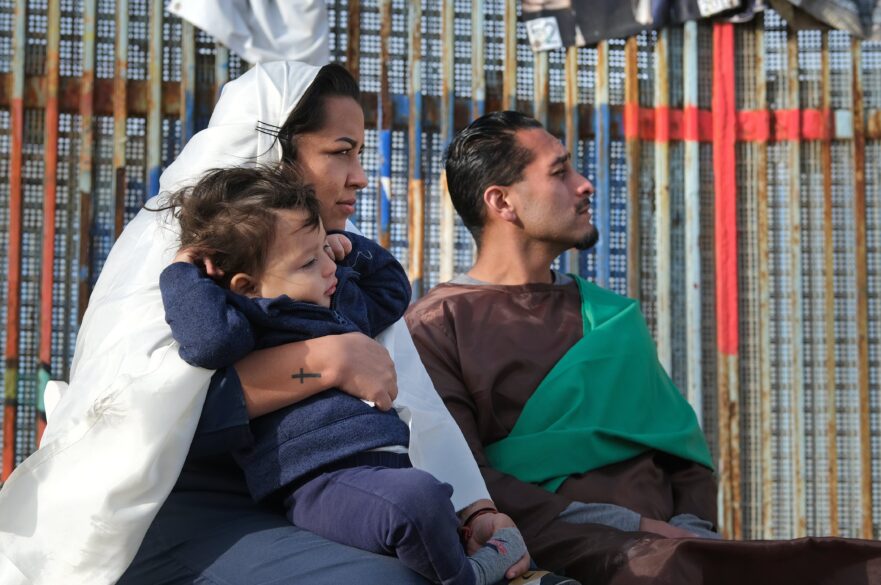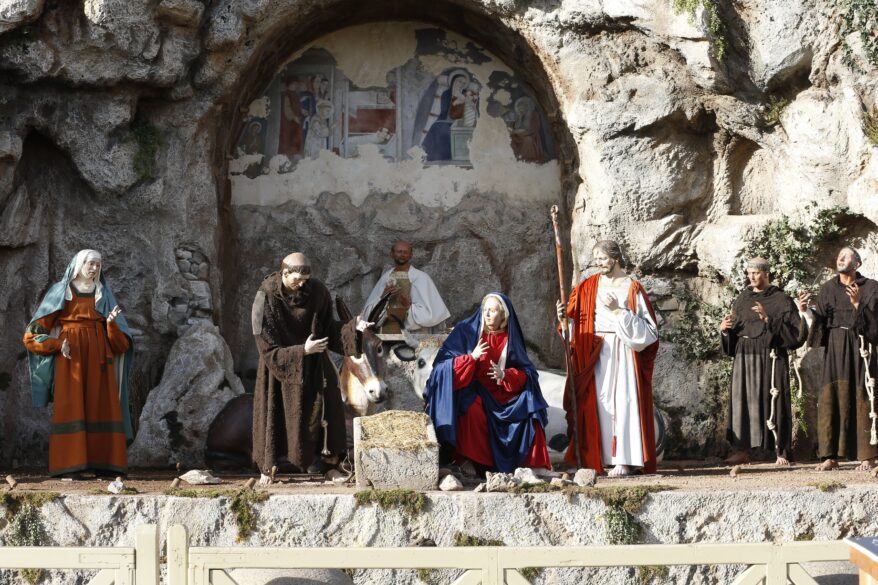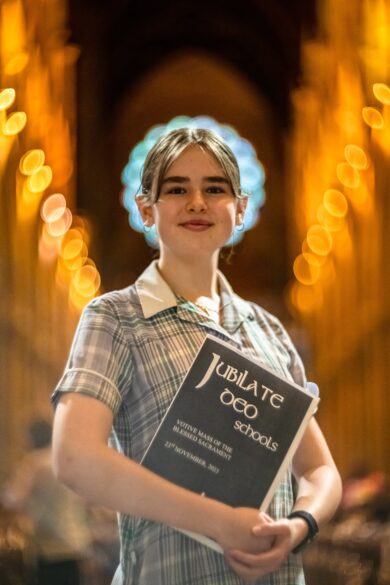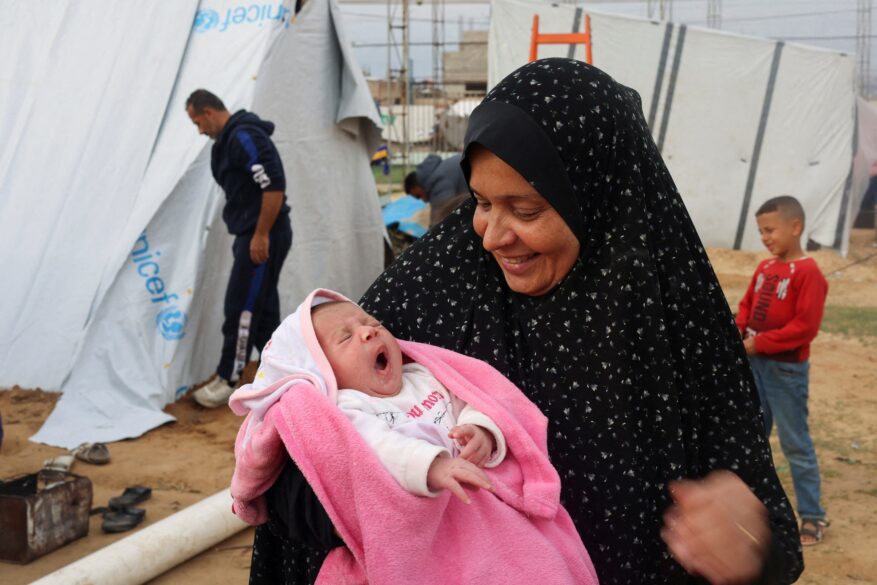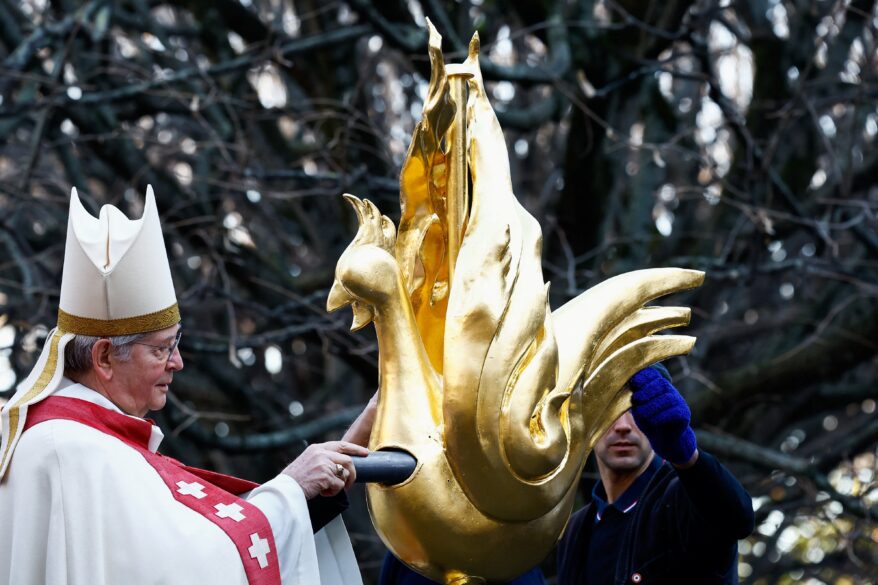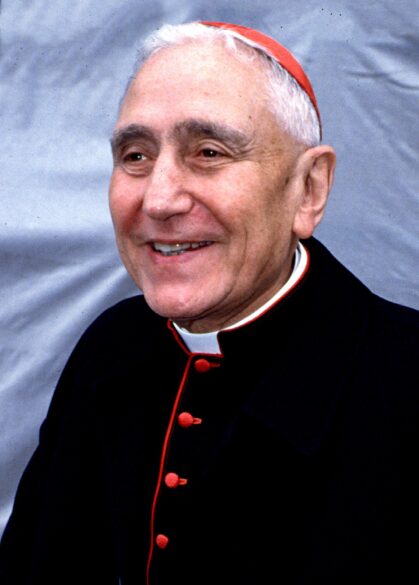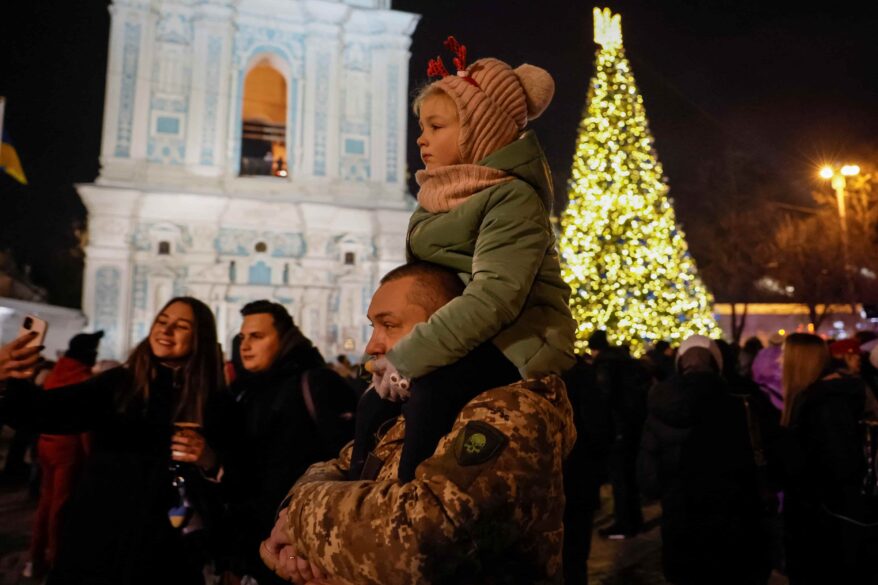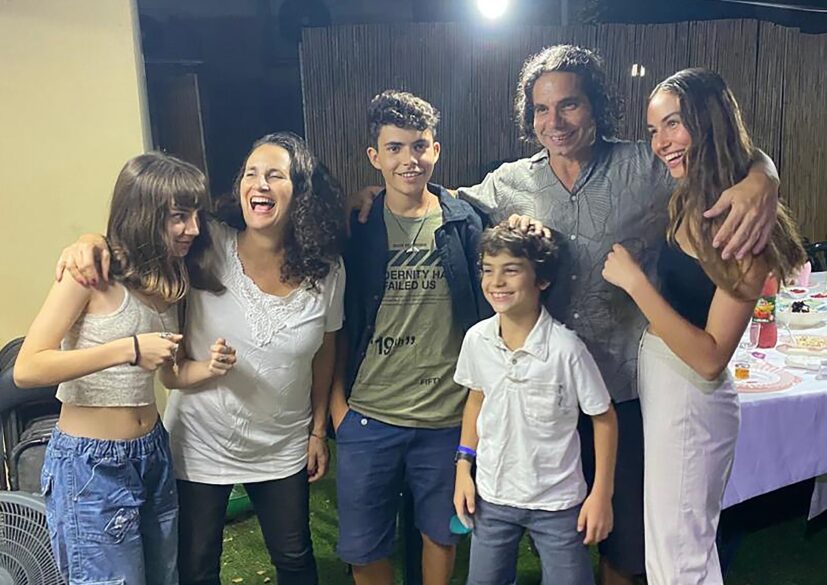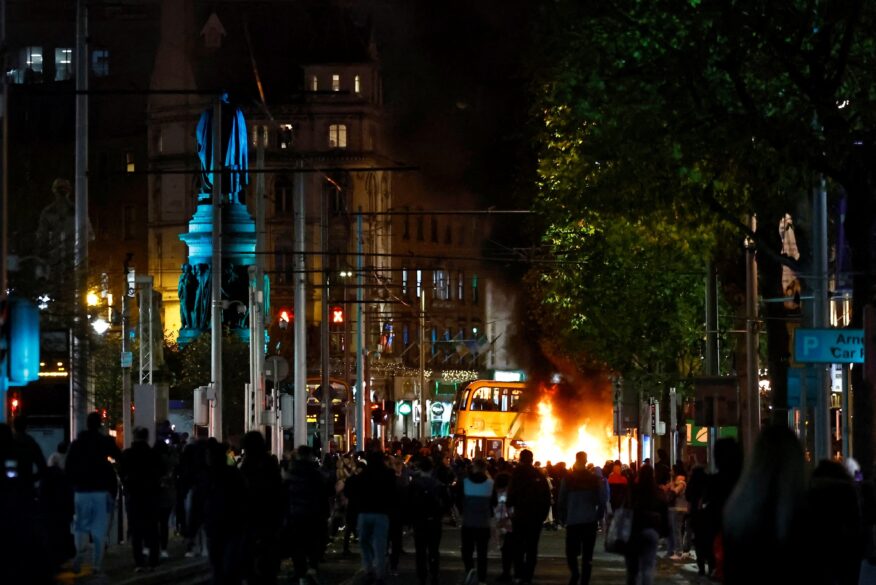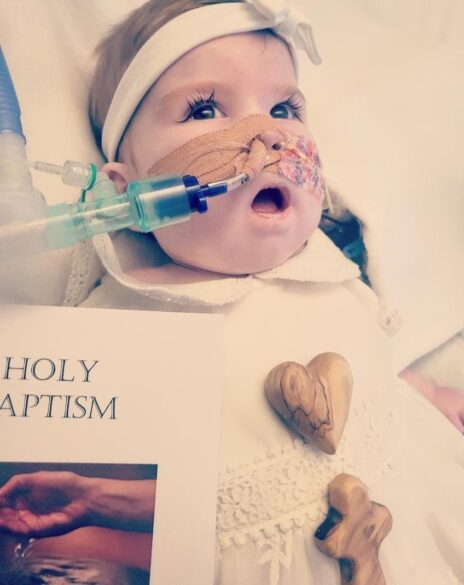NATION
MOBILE, Ala. (OSV News) – An Alabama Catholic priest known for talking about demonology and exorcism has now been fully returned to the lay state months after he fled the country with a recent Catholic high school graduate. The Archdiocese of Mobile announced in a Jan. 5 statement that it had “received notice that the laicization of Alex Crow is complete, effective immediately” in a decision confirmed by Pope Francis. The archdiocese said Crow initiated the process and “this decision of Pope Francis is final. There is no appeal.” On Nov. 20, the former priest civilly married Taylor Victoria Harrison, 18, a June 2023 graduate of McGill-Toolen Catholic High School with whom he had traveled to Italy in July 2023 after abruptly leaving his assignment as a parochial vicar at Corpus Christi Parish in Mobile, Alabama. Harrison turned 18 in June prior to travel, but her family repeatedly expressed grave concerns their daughter had been groomed by Crow, 30, while she was a minor as he provided pastoral ministry to students. Crow handwrote her a Valentine’s Day love letter where he described himself to the minor (at the time) as “married” to her and indicated plans for the pair to be in Italy together “with our family.” Mobile Archbishop Thomas J. Rodi had suspended Crow’s priestly faculties in late July, ordering him not to present himself as a priest, and in a Jan. 5 statement thanked Pope Francis for his decision.
TUCKAHOE, N.Y. (OSV News) – A beloved Italian saint is speaking to the faithful anew through a series of letters sent directly to their email inboxes. The Saint Pio Foundation has announced the release of “Epistolary,” a collection of 365 letters written by Padre (“Father”) Pio to his spiritual directors and students. A dedicated page on the foundation’s website includes a sign-up form (available at https://www.saintpiofoundation.org/saint-pios-epistolary) for receiving a weekly PFY with seven letters, one for each day of a given week. The first batch of letters was sent out Jan. 1 by the Tuckahoe, New York-based foundation. Freshly translated into English from the original Italian, the Epistolary represents a fraction of the “thousands and thousands of letters” Padre Pio wrote during his lifetime, Luciano Lamonarca, founder and CEO of the Saint Pio Foundation, told OSV News. Lamonarca said the Epistolary is one of several “gifts” he wanted to give to the Catholic community to mark the foundation’s upcoming 10th anniversary in April. But the gifts he has received from his own devotion to the saint have been life-changing, he added, noting that he and his wife Valentina credit the 2015 birth of their son Sebastian – after losing several children to stillbirth and miscarriages – to the saint’s intercession. Lamonarca told OSV News that Padre Pio’s spiritual wisdom is summarized in one of the saint’s best-known maxims: pray, hope and don’t worry. “He releases his fear, he releases everything (into) God’s grace.”
ST. PAUL, Minn. (OSV News) – A multiyear investigation overseen by the Catholic Church into Archbishop John C. Nienstedt, who resigned from the Archdiocese of St. Paul and Minneapolis, has ended with the Vatican finding he acted “imprudently” in several instances but not criminally under canon law, Archbishop Bernard A. Hebda said in a statement Jan. 5. “None of those instances, either standing alone or taken together, were determined to warrant any further investigation or penal sanctions,” Archbishop Hebda said, but Pope Francis determined several administrative actions “are justified.” Among them, Archbishop Nienstedt “may not exercise any public ministries” in the “Province of St. Paul and Minneapolis,” which covers Minnesota, North Dakota and South Dakota; “may not reside in the Province of St. Paul and Minneapolis”; and “may not exercise ministry in any way outside of his diocese of residence” without permission of the local bishop. Archbishop Nienstedt resigned after criminal and civil charges were brought against the archdiocese in June 2015 for failing to protect children from a former pastor convicted of sexually abusing three minors in his parish. The civil and criminal charges against the archdiocese were dismissed in 2015 and 2016, respectively. In a response to the findings, Archbishop Nienstedt, who lives in Michigan, said he resigned to give the archdiocese “a new beginning” and he has asked the Holy See to clarify the “imprudent” actions he allegedly committed.
VATICAN
VATICAN CITY (CNS) – Giving to others in need is not enough; people must look those they help in the eyes and be willing to touch their poverty with their hands and hearts, Pope Francis said. Meeting Jan. 5 with members of the Unicoop supermarket cooperative, which is based in Florence, Italy, the pope said Christians must “be close to the people we help.” When hearing confessions, he said, he asks people if they give to the poor, to which people often answer “yes.” The pope said he asks in reply: “And tell me, when you give to the poor, do you look in the eyes of the person, touch their hand, or throw the money there?” He told the group, “Touch, touch poverty, touch,” encouraging them to develop “a heart that touches, to look and to understand.”
VATICAN CITY (CNS) – Pope Francis expressed his condolences and prayers after two bombings in Kerman, Iran, claimed the lives of 84 people and wounded scores more at a memorial for an assassinated Iranian military officer. In a telegram sent on behalf of the pope Jan. 5, Cardinal Pietro Parolin, Vatican secretary of state, said the pope “was deeply saddened to learn of the loss of life caused by the recent explosions in Kerman.” “He sends the assurance of his prayers for those who have died and for their grieving families” and expressed “his spiritual solidarity with the injured,” the telegram said. The pope also “invokes upon all the people of Iran, the Almighty’s blessing of wisdom and peace,” it said. The Islamic State claimed responsibility for the Jan. 3 attack in southern Iran, saying it was caused by two of its members wearing and detonating explosives. The blasts went off outside a cemetery where thousands had gathered for the anniversary of the assassination of Qasem Soleimani in 2020. Soleimani, whose militia force had fought against the Islamic State in Iraq, had been killed in Iraq in 2020 by a U.S. drone strike.
WORLD
SOKOTO, Nigeria (OSV News) – Gov. Caleb Mutfwang of Nigeria’s Plateau state declared a week of mourning Jan. 1-8 to honor the deaths of at least 200 Christians killed over Christmas by Fulani Muslim herders, targeting Christians in the country. Bishop Matthew Hassan Kukah of Sokoto said the attackers are “children of darkness” and come “from the deepest pit of hell.” The Dec. 23-28 killings also have led to thousands of people being forced to flee their homes. As many as 80 villages in Plateau state were attacked, Christian aid group Release International reported Dec. 30. Bodies continue to be discovered, and attacks are expected to continue, Release International reported. “I urge all citizens to use these days for intense prayers to seek the intervention of the almighty God in defending our territories against wicked men that have risen against us,” Mutfwang said in a video statement released Jan. 2. In a three-page New Year’s message, called “Blood and crucifixion on the Plateau,” a copy of which OSV News obtained, Bishop Kukah strongly condemned the killers as “sons of Satan” who “came to the Plateau again, bearing their gifts of death and destruction.” he said. The Fulani herders “came from the deepest pit of hell” and snatched “the light of the joy of Christmas from thousands of people on the Plateau.”
SANTIAGO DE COMPOSTELA, Spain (OSV News) – U.S. pilgrims made up the largest international group walking the famous Camino to Santiago de Compostela, Spain, in 2023. The Way of St. James welcomed over 32,000 American visitors in a record year for the ancient pilgrimage site. Interest in the Camino de Santiago – a network of pilgrim routes across Europe that lead to the Tomb of Saint James – is greater than ever, with the worldwide number of pilgrims walking the site approaching half a million. Not everyone, however, walks because of religious reasons. According to the statistics published by the pilgrims’ office, 446,035 pilgrims from all over the world arrived in the City of the Apostles last year. With 44% of the pilgrims (almost 200,000) being Spanish, Americans were the most common international visitors (32,063), followed by Italians (28,645) and Germans (24,342). The Portuguese, French, British, Mexicans, South Koreans and Irish were also represented in the top ten, followed by pilgrims from destinations as far as Australia, Brazil and Canada. According to the Pilgrims’ Bureau, 42.6% of arrivals cited “religious reasons,” 4.7% cited “religious and other reasons” in the latest statistics and 22.7% were walking for “non-religious reasons.”
MEXICO CITY (OSV News) – The U.S. Department of State has demanded the release of Bishop Rolando Álvarez of Matagalpa and other imprisoned Nicaraguan religious leaders following a wave of detentions targeting Catholic clergy over the Christmas season. The Jan. 2 statement described Bishop Álvarez and the other religious leaders – including Bishop Isidoro Mora of Siuna – as “unjustly detained” and deplored the conditions in which they were being held. Bishop Álvarez has been detained for more than 500 days, it noted. “Nicaraguan authorities have kept Bishop Álvarez in isolation, blocked independent evaluation of the conditions of his imprisonment, and released staged videos and photographs that only increase concerns about his well-being,” read the statement, signed by State Department spokesperson Matthew Miller. The regime of President Daniel Ortega and his wife, Vice President Rosario Murillo, “continues to impose severe restrictions on religious communities and deny Nicaraguan citizens the ability to freely practice their religions and express their beliefs. We once again call on the Nicaraguan government to release Bishop Rolando Álvarez immediately and without conditions.” In a separate post on social media platform X, formerly Twitter, Miller called Bishop Álvarez’s detention “unconscionable,” adding, “Freedom of belief is a human right.” On Dec. 31, Cardinal Leopoldo Brenes of Managua urged prayer for the “families and communities that at this moment feel the absence of their priests or are experiencing other types of pain.”

